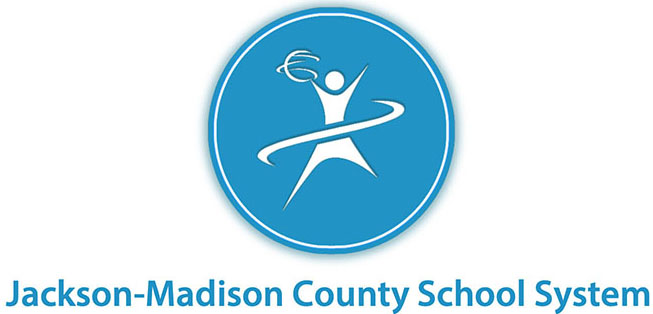Managing Medical Bills: How to Negotiate and Reduce Costs
More than half of Americans say they currently have outstanding medical bills or unpaid medical debt, according to a recent survey. If you’re one of them, you know how stressful it can be. Healthcare costs are a real burden for many, and getting a big medical bill can feel overwhelming. But it doesn’t have to be the final word. You have options, and one of the most useful is learning how to negotiate and lower those costs. We’ll give you straightforward, step-by-step strategies to understand your bills and effectively work towards reducing what you owe.
🔍 Understanding your medical bills
First things first: take a close look at that bill. It might seem like a jumble of numbers, but it’s worth your time to check it carefully. Mistakes happen! You might see charges for things you didn’t get, like being billed twice for the same test, or for a different treatment than you actually had, or even the wrong amount of medication.
To really understand what you’re looking at, ask for an itemized bill. This breaks down every single charge. You’ll also see codes like CPT and ICD-10. These are basically shorthand for medical procedures and diagnoses. While you don’t need to become an expert, knowing they exist can help when you’re talking to the billing office.
To get the full picture, you’ll also need to gather some information:
- Your insurance policy details: Know what your plan covers, how much your deductible is (what you pay before insurance kicks in), and your out-of-pocket maximum (the most you’ll pay in a year).
- Your Explanation of Benefits (EOB): This is the statement from your insurance company that shows what they paid and what you might owe. Compare this to the hospital’s bill.
- The dates you received services and what those services were: This helps you match the charges to what actually happened.
📝 Preparing to negotiate
Before you call, do a little homework on typical costs in your area using websites like FAIR Health Consumer or Healthcare Bluebook. Remember, the hospital’s initial price (the “chargemaster” rate) is often much higher than what insurance pays.
Next, get organized. Keep records of all your calls (dates, names, what you discussed) and keep all your bills and insurance info together.
Finally, think about how you want to handle the payment. Can you offer a one-time payment? Do you need a payment plan? Are you facing serious financial difficulties? Having a payment strategy in mind will help you negotiate.
📞 The negotiation process
When you’re ready to negotiate, here’s who you’ll likely be contacting:
- The hospital billing department: This is your main point of contact for hospital charges.
- The individual doctor’s office: If you get separate bills from doctors who treated you at the hospital (like a surgeon or anesthesiologist), you’ll need to contact their offices directly.
- Your insurance company (appeals process): If you think your insurance should have covered more, you can file an appeal with them.
When you call, remember to be polite, calm, and respectful. Clearly explain why you’re calling and what you hope to achieve. Ask specific questions about the charges you don’t understand. It might take more than one call, so be persistent, but always keep it professional.
Here are some things you can try to negotiate:
- Ask for discounts: See if they offer a lower price if you pay in cash or quickly. If you don’t have insurance, definitely ask for an “uninsured” discount.
- Challenge charges: If you see errors or think something is overpriced (based on your research), point it out with the evidence you’ve gathered.
- Offer a lump-sum: If you can pay a good portion of the bill right away, offer a lower amount to settle the debt.
- Ask about financial help: See if the hospital has programs to assist patients with low incomes or significant medical debt. This is sometimes called “charity care.”
🤝 Getting extra help
Sometimes, dealing with medical bills can feel like too much. That’s okay, there is help!
If you have multiple medical bills that are hard to juggle, you might also consider medical debt consolidation, which combines your debts into a single, potentially more manageable payment through a personal loan, balance transfer credit card, or debt management program.
Medical billing advocates are professionals who understand the ins and outs of medical bills and insurance. They can review your bills for errors, negotiate with the hospital or doctor’s office on your behalf, and help you understand your rights. They usually charge a fee, but they can potentially save you a lot of money and stress.
There are also non-profit organizations that offer free or low-cost assistance with medical bills. They can provide guidance, help you understand your options, and even advocate for you.
In more complicated situations, especially if you feel you’ve been unfairly charged or there’s a significant dispute you can’t resolve, legal aid might be an option. These services provide free or low-cost legal assistance to people who qualify.
Don’t feel like you have to go through this alone. If you’re feeling overwhelmed, reaching out for help from these resources could make a big difference.
Final thoughts
Dealing with medical bills can feel like a headache, but don’t give up. Knowing what to do and being willing to speak up can make a big difference. You have the right to understand your bills and ask questions. It might take a little effort, but every bit you save can make a real impact on your wallet. So, arm yourself with information and don’t hesitate to advocate for fair costs – your health and your finances deserve it.

